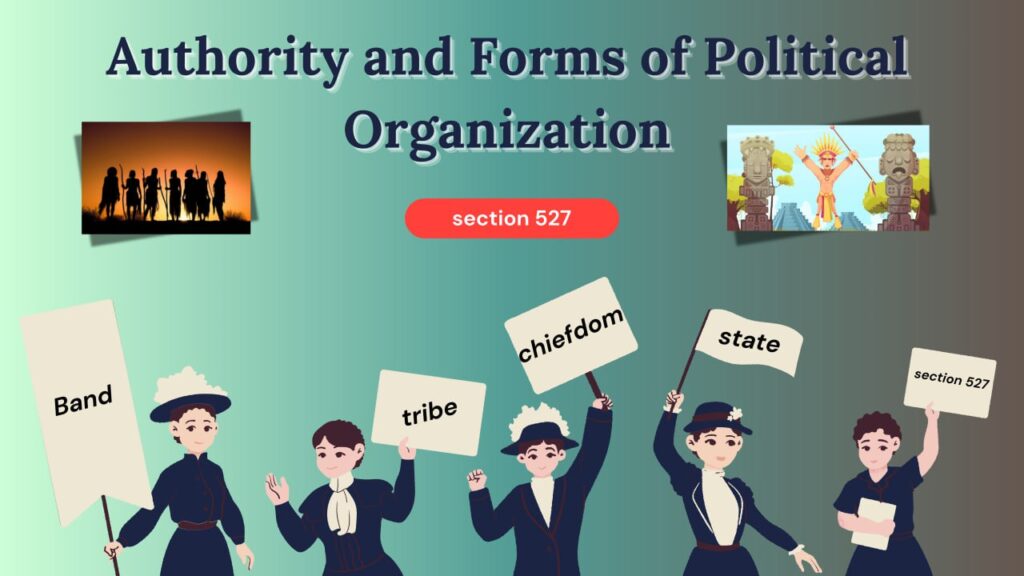Authority and forms of political organization Approach
⦁ Introduction: Meaning of the Authority
⦁ Body: Add various forms of political organization with their present relevance and challenges and limitations
⦁ Conclusion: add its contemporary relevance
INTRODUCTION
Authority refers to the legitimate power that an individual or group holds and exercises over others. It is a fundamental concept in political science and sociology, essential for understanding how societies are organized and governed.
BODY
Here’s a comprehensive look at the forms of political organization, their present relevance, and the challenges and limitations they face:
Forms of Political Organization
⦁ Bands:
⦁ Description: Small, kin-based groups typically found among foragers. Leadership is informal and based on personal qualities and skills.
⦁ Relevance: Bands are rare in contemporary society but can be seen in small, isolated communities. They offer insights into human social evolution and the importance of kinship and cooperation.
⦁ Tribes:
⦁ Description: Larger than bands, tribes are often composed of several kin groups or clans. Leadership is more formalized, often vested in a council of elders or a chief.
⦁ Relevance: Tribal structures persist in some regions, particularly in parts of Africa, Asia, and the Americas. They play a crucial role in maintaining cultural traditions and social cohesion.
⦁ Chiefdoms:
⦁ Description: Centralized political systems with a single leader or a group of leaders who hold authority over multiple communities. Social hierarchy and economic redistribution are key features.
⦁ Relevance: Chiefdoms are less common today but can be found in some Pacific Islands and parts of Africa. They highlight the transition from egalitarian to hierarchical societies.
⦁ States:
⦁ Description: Highly centralized political organizations with a formal government that exercises authority over a defined territory. States have complex institutions, legal systems, and bureaucracies.
⦁ Relevance: The state is the dominant form of political organization in the modern world. It is essential for maintaining order, providing public services, and regulating economic activities.
Present Relevance
⦁ Global Governance:
⦁ States play a critical role in international relations and global governance. Organizations like the United Nations rely on the cooperation of sovereign states to address global issues such as climate change, security, and human rights.
⦁ Cultural Preservation:
⦁ Tribal and indigenous political organizations are vital for preserving cultural heritage and traditional knowledge. They advocate for the rights and autonomy of indigenous peoples in the face of globalization.
⦁ Decentralization and Local Governance:
⦁ There is a growing trend towards decentralization, where local governments and communities are given more authority to manage their affairs. This can enhance democratic participation and address local needs more effectively.
Anthropology Full Course at Vishnu IAS Academy
What does Course Offer?
- 4 Months (250+ Class Hours)
- Online (App + Web) / Offline / Hybrid Mode of Classes
- Live + Recorded Videos Access For 1 Year
- 2 Hour Live Class From Monday to Saturday (1.5 Hours for Class + ½ Hour for Doubt Solving)
- Foundation to Advanced Level of Teaching
- Simple and Integrated Content
- One Stop Solution Books
- Regular Value Added Content
- Current Affairs & Case Studies Modules
- Daily Answer Writing Practice
- Weekly Grand Tests On Sundays & Evaluation With Guidance and Topper Will be Rewarded
- 500+ Model Answers
- 9 AM – 9 PM Support System
- Free GS Current Affairs
- Free Interview Guidance for Anthropology

